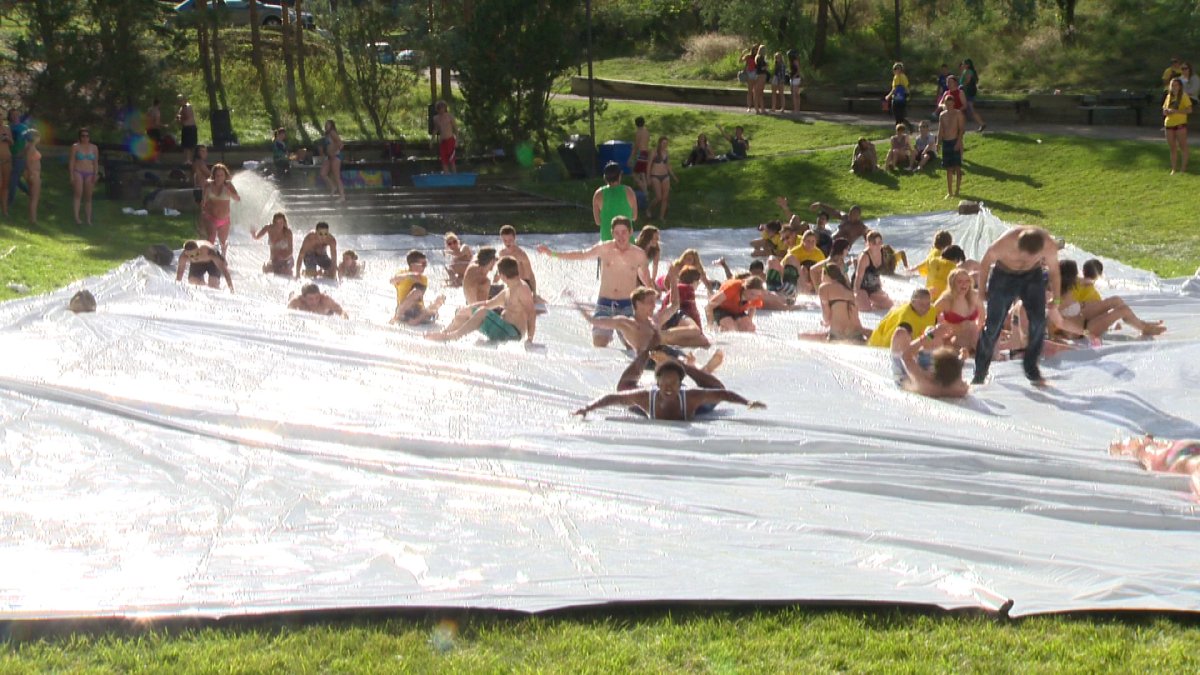One in five women arriving on a Canadian university or college campus this week will experience sexual violence while studying at a post-secondary institution, the Canadian Federation of Students says.

But McGill University is trying to change that.
Before any student, teacher or staff members set foot onto the university’s campus in Montreal, they had to take a mandatory 45-minute online course called, “It takes all of us: creating a campus community free of sexual violence.”
Students aren’t able to register for any classes before they complete the web-based course.
The different modules explore what is consent, the impact of sexual violence and how to intervene if you see something inappropriate.
Student leaders who help organize Frosh week had more intensive training so they could recognize harmful situations before they happen and get help if something does happen during the sometimes alcohol-fueled orientation week.
It’s a big change from even three years ago.
“I started in 2016. What we kind of always say is that Frosh used to be a drinking event. Whereas now Frosh is an event with drinking,” said Charlotte Koch, vice-president of McGill’s management undergraduate society.
Koch says the online course provides that foundation of knowledge for all students coming to the school, “Even just going over the distinction between sexual harassment and sexual violence. Just to we can have the same language for your time at McGill”.
All the more important because, according to Ryerson University’s office of sexual violence and support education, two-thirds of sexual assaults that happen on campus, occur in the first eight weeks of school.
WATCH (March 18, 2019): Queen’s University releases on-campus sexual assault numbers

“We’re talking about young people, we’re talking about alcohol. We know that things can go wrong but that’s why we pay attention to training and education of everyone involved whether it’s the 18-year old that just came from the U.K. or whether it’s that 19 or 20-year old who is one of the responsible ones,” Chris Buddle, McGill’s dean of students told Global News.
McGill’s online course goes beyond requirements set out by the previous Quebec government in 2017. Bill 151 requires all post-secondary institutions in the province to adopt a policy to prevent sexual violence on campus. The legislation was a response to a spate of incidents in the province involving allegations of sexual misconduct.

Get breaking National news
No campus is immune.
In 2013, both Saint Mary’s University and University of British Columbia students were caught on camera chanting songs advocating sexual assault. One year later, Dalhousie University launched an investigation into a private Facebook group run by male students at the faculty of dentistry. Posts in the private group were described as misogynistic and sexually explicit.
Those incidents force all schools to examine what they were doing to combat rape culture on campus.
The University of Calgary developed the “Ask First” program to educate students about consent, end victim blaming and empower students to start the conversation around sexual assault.
Simon Fraser University in B.C. started the Active Bystander Network to create a culture of zero-tolerance on campus with student leaders. Carleton University in Ottawa is doing something similar with a program called Champions for Change.
Nearly a month before classes even started, 11 student-athletes spent three days in a classroom to help shape a strategy to prevent sexual assault on campus.
WATCH (May 24, 2019): Calgary post-secondary institutions work to address sexual violence on campus

Behind closed doors, the men and women were open with each other about their own experiences and ideas for how to create a safe environment on campus.
“We need to make this conversation the norm. People need to not only know what to do in a situation but how to help people, how to listen, how to support,” said Carleton journalism student Sara Wicks.
Part of that conversation is laying down simple definitions of the basics.
“A lot of people don’t know what consent is. They just simplify it and say ‘Oh like maybe is kinda like I should try harder. Or a no is maybe she’s playing hard to get, but no. A yes is a yes, and a no is a no,” said Carleton student Maz Atta after the course.
Carleton’s sexual assault support coordinate Bailey Reid wanted to start this program with student-athletes because they are seen as the leaders around the school even though incidents at other schools have involved members of sports teams.
“Sometimes they get a bad rap so we wanted to kind of flip that script and say, ‘You’re not the problem, you’re actually the solution’, that athletes on campus have so much power, they have so much social capital,” Reid told Global News.
In every program across the country, the goal is to empower students to use their voices and stand up and denounce sexual assault and harassment around them. Results may not be reflected right away in sexual assault statistics but the hope is, if attitudes shift, so too will the numbers
WATCH (Sept. 5, 2017): University of Ottawa student frosh leaders will not be equipped with naloxone



Comments